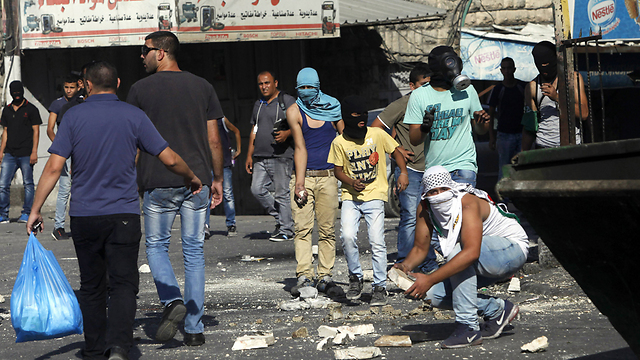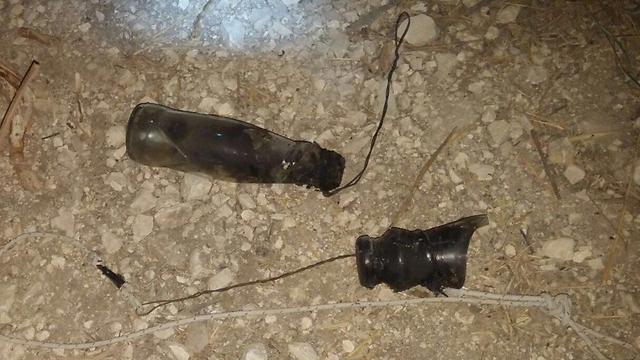Jerusalem District Court judge hands down 2-5.5 year sentences for E. Jerusalem youths convicted of synagogue arson and multiple firebomb attacks; prosecutor weighing appeal.
A Jerusalem municipal court convicted a group of four 20-year-old men from East Jerusalem on Monday, after the men confessed to being involved in several firebomb attacks and an arson which set fire to a Jerusalem synagogue in November of 2013 – but the prosecution announced it was considering an appeal because of relatively light sentences.
The group threw firebombs at Israeli cars and police cruisers on eight different occasions, and the judge handed down relatively light sentences for crimes of this nature, ranging from 2-5.5 years.
The District Court judge, Arie Romanov, refused the district prosecutor’s request to hand down cumulative sentences, and the prosecutors’ office is considering an appeal in reaction to the relatively light sentences.
The members of the group are Mohammad Abid, who was sentenced to 5.5 years in prison; Ibrahim Darbas (40 months in prison); Mohammad Alian (52 months in prison), and Waleed Alian (three years in prison). All of the convicts are 20 years old, and reside in the East Jerusalem neighborhood of Issawiya.
The group was active between the years 2013 – 2014, and according to the indictment, “inflicted terror on the residents of Jerusalem’s French Hill neighborhood.”

Among other acts, the group set fire to a synagogue in 2013, and were involved in several firebomb attacks against a fuel pump, police cruiser, and other targets.
One of the group’s members was indicted independently due to his involvement in a 2014 firebomb attack on a Hebrew University parking lot.
Three other members of the group took part in a firebomb attack on the Ofrit military post a month later, and later attacked two passers-by who were heard speaking Hebrew near the Hebrew University.
The suspects admitted their participation in the acts within the framework of a plea agreement, but the sides did not manage to reach an agreement regarding sentencing.
The prosecutor, Yifat Pinhasi, sought cumulative punishments for each act committed by the youths, which would have added up to 10 years per suspect. She stated that although the suspects were young, these acts are typically committed and repeated by members of that age group, and as such this factor should be formulated into any final decision.
Defense counsels claimed that the convicts suffered due to the living conditions in Issawiya, in addition to the government authorities’ generally discriminatory and unfair attitude towards the neighborhood and its residents. The defense claimed that due to the aforementioned conditions, the suspects’ actions were conducted out of a feeling of deprivation, insult, and humiliation.

Judge Romanov rejected the claims: “Even if the suspect’s emotions are honest – and I can’t rule that this is the case – this doesn’t give them the right to break the law, and put others in danger.”
Romanov emphasized the severity of the group’s actions, which were not limited to a single incidents.”The variety of incidents indicates sophistication,” he said.
With that said, despite of the severity of the actions, Judge Romanov rejected the prosecutor’s request to issue individual sentences for every incident.
“The prosecutors position holds arithmetic reasoning, and maybe more, but I fear this approach doesn’t recognize mankind’s limited life spans, the goal is to allow for rehabilitation and a return to society in order to open a new page after serving their punishment.”
The Jerusalem district prosecutor said in response that it would review the sentencing and weigh its position in regards to a possible appeal.
As reported by Ynetnews
